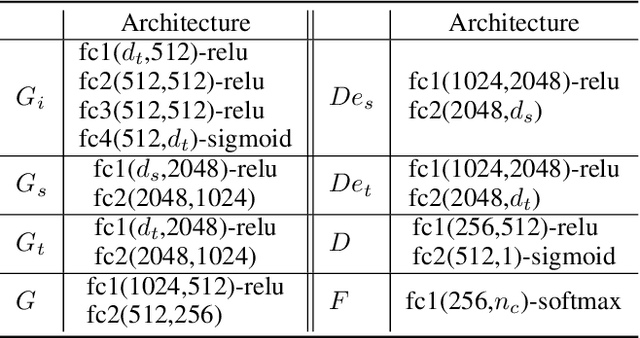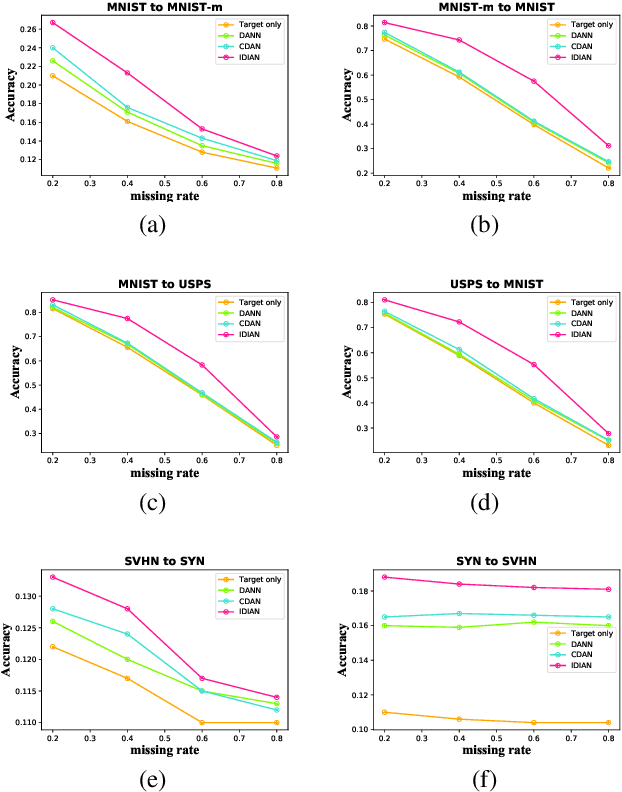Tiantian Tang
CNN-based Discriminative Training for Domain Compensation in Acoustic Event Detection with Frame-wise Classifier
Mar 26, 2021



Abstract:Domain mismatch is a noteworthy issue in acoustic event detection tasks, as the target domain data is difficult to access in most real applications. In this study, we propose a novel CNN-based discriminative training framework as a domain compensation method to handle this issue. It uses a parallel CNN-based discriminator to learn a pair of high-level intermediate acoustic representations. Together with a binary discriminative loss, the discriminators are forced to maximally exploit the discrimination of heterogeneous acoustic information in each audio clip with target events, which results in a robust paired representations that can well discriminate the target events and background/domain variations separately. Moreover, to better learn the transient characteristics of target events, a frame-wise classifier is designed to perform the final classification. In addition, a two-stage training with the CNN-based discriminator initialization is further proposed to enhance the system training. All experiments are performed on the DCASE 2018 Task3 datasets. Results show that our proposal significantly outperforms the official baseline on cross-domain conditions in AUC by relative $1.8-12.1$% without any performance degradation on in-domain evaluation conditions.
Domain Adaptation with Incomplete Target Domains
Dec 03, 2020



Abstract:Domain adaptation, as a task of reducing the annotation cost in a target domain by exploiting the existing labeled data in an auxiliary source domain, has received a lot of attention in the research community. However, the standard domain adaptation has assumed perfectly observed data in both domains, while in real world applications the existence of missing data can be prevalent. In this paper, we tackle a more challenging domain adaptation scenario where one has an incomplete target domain with partially observed data. We propose an Incomplete Data Imputation based Adversarial Network (IDIAN) model to address this new domain adaptation challenge. In the proposed model, we design a data imputation module to fill the missing feature values based on the partial observations in the target domain, while aligning the two domains via deep adversarial adaption. We conduct experiments on both cross-domain benchmark tasks and a real world adaptation task with imperfect target domains. The experimental results demonstrate the effectiveness of the proposed method.
 Add to Chrome
Add to Chrome Add to Firefox
Add to Firefox Add to Edge
Add to Edge